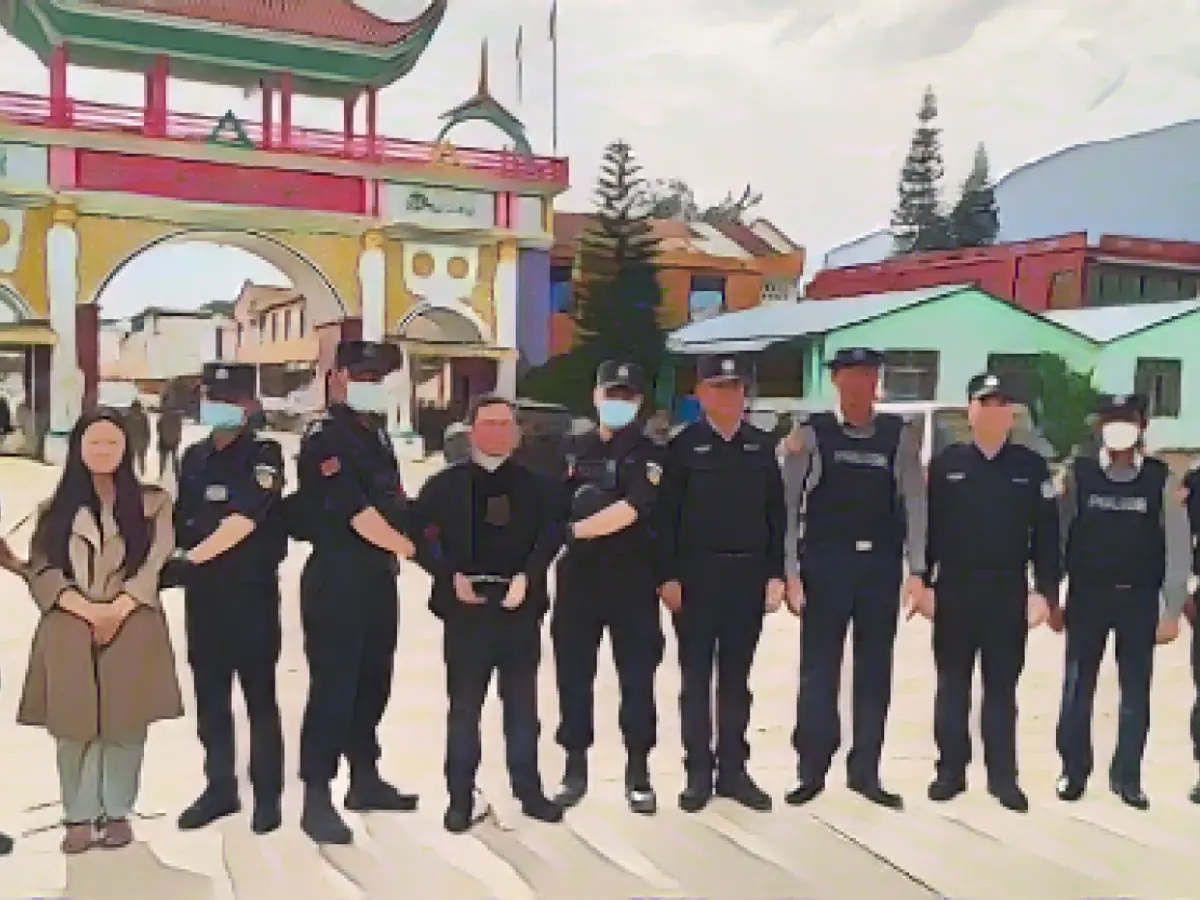Struggles over online scams and fraud along the Chinese-Myanmar border have strained Beijing's relationship with the country's military junta.
For decades, Peking supported the military government in Myanmar, providing essential economic, military, and diplomatic aid, while maintaining close ties with powerful rebel militias along the border. However, when military leaders seized power in 2021, ousting a democratically-elected government that had cultivated strong ties with China, and restoring a regime of isolationist military rule, dense with human rights abuses, Peking's patience began to wane.
The ruling junta has since focused on waging a brutal civil war and attempting to assert control over its expanding territory, all while threatening China's economic and strategic interests, including ambitions to link China's southwest hinterland with powerful Infrastructure networks in the Indian Ocean.
China's frustration has grown to new heights as the junta has yet to take the required actions against cyber crimes and scams flourishing near the border, acts primarily led by criminal gangs with Chinese bosses. These organized crime rings imprison tens of thousands of individuals, mostly Chinese, in heavily guarded compounds controlled by local warlords.
Despite the pressure, China's efforts to rein in the Myanmar junta have been met with limited success.
In late October, a powerful alliance of ethnic rebel groups, collectively known as the "Three Brothers," launched a massive offensive against the junta, named "Operation 1027," leading to the unmasking of several high-profile cybercrime centers along the border.
As a result, the arrest of a powerful warlord family, formerly allied with the junta, now undergoes Chinese police custody.
"China has been making use of Operation 1027 to exert maximum pressure on the military regime, inspiring it to address cybercrime," commented Jason Tower, Myanmar Director at the United States Institute of Peace.
Recent weeks have seen China express a desire to aid the junta in reaching a temporary ceasefire with the rebels, following a summit between both parties in China for peace talks.
However, this assistance came at a steep cost: the collapse of the last remaining criminal families supporting the junta's rule over the border region.
The border region housing the notorious cybercrime centers has been a haven for illegal gambling, drug trafficking, and human and wildlife smuggling for decades. However, the COVID-19 outbreak saw online scams booming, with many led by Chinese gang bosses.
Ethnic rebel groups have used the rise of cybercrime as a justification for their offensive against the junta, vowing to eradicate telecom fraud, swindling dens, and their sponsors throughout the country, with a clear message aimed at China.
In May, China began to publicly pressure the junta over cybercrime along the border, as then-Foreign Minister Qin Gang paid a visit to Myanmar's capital, Naypyitaw, and raised the issue with General Min Aung Hlaing, the Supreme Commander.
"Since then, the regime's rhetoric has fallen on deaf ears, with crimes continuing, and I believe that's the result of China's tacit support for Operation 1027," said USIP expert Tal.
Tal noted that Chinese authorities had been encouraging the ethnic rebel groups to avoid escalating the conflict and pursue negotiations with the military, leading to several rounds of talks between the two parties.
"But after October, things seem to have shifted. China's frustration with the junta led to the easing in pressure. When the pressure lifted, operations like Operation 1027 became possible," mentioned Tal.
A strategic hub for cybercrime and illegal gambling operations is located in Kokang, a region dominated by many ethnic Han-Chinese and governed by the Kokang Border Guard Force, a militia supported by the junta leader Min Aung Hlaing.
Two days into Operation 1027, China's Minister of Public Security Wang Xiaohong visited Naypyitaw and held a meeting with Min Aung Hlaing, promising to intensify cooperation between the two countries to combat online fraud and gambling.
Within days, China issued a warrant for the arrest of prominent Kokang warlord Ming Xuechang's family, with Ming and his son, a leader in the Kokang Border Guard Force, sought for allegedly operating fraud centers targeting Chinese nationals and deploying their private army to secure their businesses.
Three members of the clan were later extradited to China and detained, with reports suggesting Ming had taken his own life before his capture, as reported by Chinese state media.
By November, authorities in Myanmar had handed over over 31,000 suspected cybercrime suspects to China since both countries launched an investigation into online fraud in September. The majority of detainees were handed over post-Operation 1027.
Richard Horsey, Senior Advisor on Myanmar at the International Crisis Group, stated that for China, it was more crucial to address cybercrime issues than to maintain peace on its borders.
"China sees closing fraud centers as a temporary measure to halt illegal activities and instability along the border. However, I don't believe China wants the conflict to persist or expand beyond necessary measures," mentioned Horsey.
However, the antagonistic junta has maintained strategic alliances with powerful ethnic militias in the region, such as the Kokang Border Guard Force, led by warlords like Ming, whom China sees as critical to its influence over the restive border state.
One particularly grisly incident in Laojin, Kokang's main city at the China border, was another major blow to China's patience. The casino-centric city had grown into a hub for organized cybercrime, with reports of several Chinese citizens being gunned down while attempting to escape the fraudulent hub in early October.
"That was the last straw, pushing China to support Operation 1027 to some extent," said Tal.
Anxious to curb fraudulent activities and preserve peace along the often precarious border, China stepped in to mediate peace talks between the junta and the Three Brothers Alliance, though its involvement came at a high price. Namely, the removal of powerful, long-established criminal families supporting the junta.








